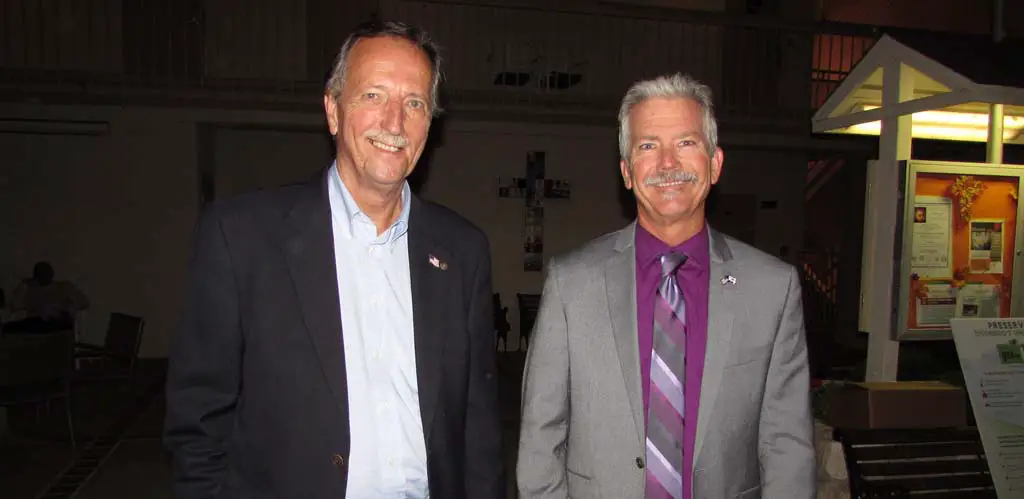ESCONDIDO— While mail-in ballots are still being counted, Mayor Sam Abed won his second term in a landslide.
Republican Abed won 60 percent of the precinct votes, compared to Democratic Deputy Mayor Olga Diaz’s 33 percent. Diaz will keep her seat on City Council since it was not up for re-election this term.
Stephen Siaw, last minute surprise candidate had about 5.5 percent of the votes. He is currently a student and billed himself as the average guy during his campaign.
There were also no changes among the councilmembers.
District One Councilman Ed Gallo won against newcomer and democratic candidate Consuelo Martinez. Gallo had 183 more votes than Martinez after all the precincts had been counted.
Councilman John Masson won his seat in District Two with 50 percent of the vote. This was Masson’s first time running since being appointed to the seat in 2012. He filled Councilwoman Marie Waldron’s seat after she was elected to State Assembly.
Rick Paul trailed behind with 23 percent, Nicole Downey had about 16 percent and Chad ‘Shad’ Hunziker had 10 percent.
The bond measure, Proposition E will likely be passed to allow the Escondido Union School District to issue $182 million in bonds to repair and replace outdated classrooms, and school buildings.
The measure needs 55 percent of the voters to vote yes and since all the precincts have been counted, 55.55 percent have casted their ballots in favor.
Proposition G, which aimed to make Escondido a charter city, was not passed by 62 percent of the voters. Mayor Abed endorsed the move because he said it would have taken power away from the state.
Abed also said it would have saved the city money because the city wouldn’t have to abide by the state mandated prevailing wages and the city would get to decide what to pay government employees.
Critics of the proposition feared it gave to much power to city officials and there was not enough evidence in surrounding cities to prove the benefits of a charter city.
Voters also struck down Proposition H or the Lakes Specific Plan, with 60 percent of voters against it.
The proposition was placed on the ballot after a citizen group, Escondido Country Club Homeowners Organization (ECCHO) asked the city to declare the defunct golf course at the former Escondido Country Club as permanent open space.
The city did and the developer, Michael Schlesinger responded with a lawsuit arguing that the city unlawfully took his property by the open space declaration.
Supporters of the Lakes Specific Plan said the passing of the 430-home development would save the city from a costly legal battle.
Schlesinger also said he planned to include an Olympic sized swimming pool and miles of trails for all Escondido residents to use.
Opponents thought 430 homes would be too much development and would overcrowd the schools.
Also, those surrounding the golf course didn’t want to lose their view, which they said was a huge selling point when they moved to the area.
The issue has gained regional attention and Schlesinger will likely continue with the lawsuit.



2 comments
Who actually “won” measure H? I only see a bunch of skeletons spread out over a dead former golf course!
The voters in Escondido may not be sure what they want for the future of the golf course, but they sure as heck knew what they didn’t want.
Comments are closed.